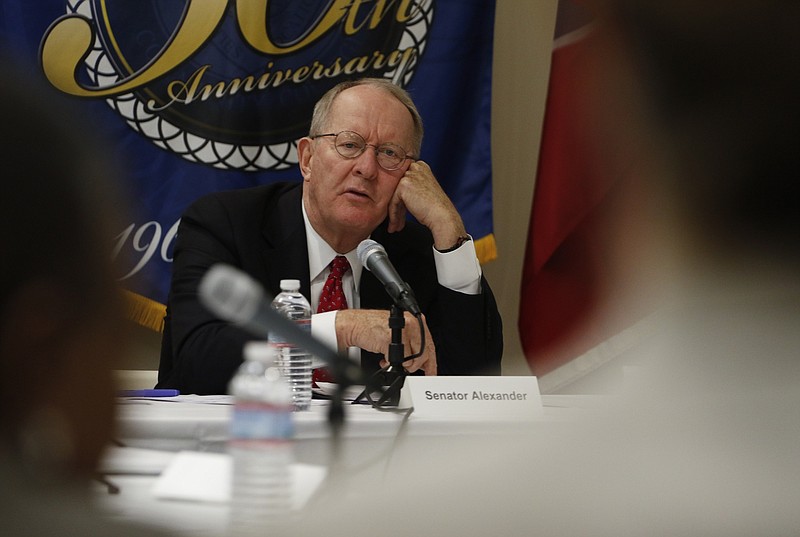Also read
* Officials: Caregivers for intellectual, developmental disability centers need raise
Beltway pundits already have written the obituaries on this year's Congress, saying election-year politics and the battle over a potential Supreme Court nomination by President Barack Obama will prevent anything significant from being done in 2016.
Thank goodness, some members aren't listening.
U.S. Sen. Lamar Alexander, R-Tenn., who last year helped craft the long-awaited No Child Left Behind update which was passed by both the U.S. House and Senate and signed into law, is now working to improve and expand access to mental health services.
His partner in the bipartisan legislation is Sen. Patty Murray, D-Wash., with whom he worked on the education bill in 2015.
The "Mental Health Reform Act of 2016," according to Alexander, embraces mental health research and innovation, gives states flexibility to meet the needs of those with mental illness and improves access to care.
Over the last several decades, the country has seen more and more instances of violent acts being perpetrated by persons who, it is subsequently learned, have been diagnosed with a mental illness or a disorder related to a mental illness.
Any legislation that updates and improves care for the individuals and their families from a federal standpoint is a step toward lowering the incidents of violence.
The bill is aimed to improve coordination between federal agencies and departments that serve people with mental illness and to seek better accountability and evaluations of those programs; to update the block grants for states in the use of federal dollars that support states in providing mental health care; to require federal agencies and programs to incorporate the latest approaches for treating mental illness and mandate that agency leadership include mental health professionals with private experience; and to increase access to care for veterans, the homeless, women and children, and improve the training of those who care for the mentally ill.
"One in five adults in this country suffers from a mental illness, and nearly 60 percent aren't receiving the treatment they need," said Alexander, chairman of the Senate Health, Education, Labor and Pensions Committee.
The committee is expected to consider the bill today, so any law that might be sent Obama's way is a long way off. And the final version won't look the same as the one senators take up today since it must be meshed with a slightly different House bill.
But Americans should be able to count on a bipartisan bill on a subject that would help all sides being debated and passed without the threat of being held up by election-year politics.
